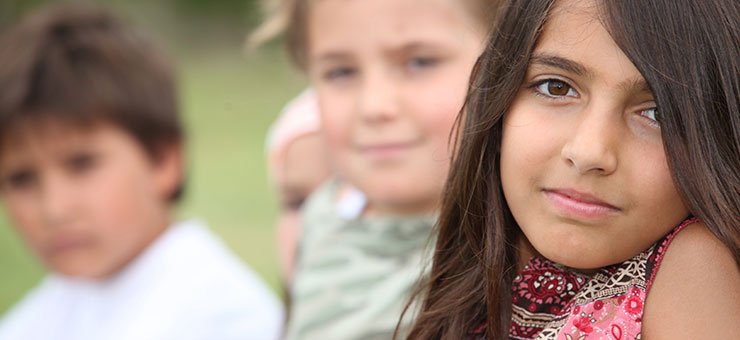Children aged 6-12
Last updated: 15/12-2023
The child will start school, and friends and its own interests will become ever more important. At the same time, the need for close relationships within the family is still strong.

Photo: Colourbox
Children develop differently. You can contact the school health care if you need support or have questions about your child's development.
Preschool class is a part of compulsory education. Most children attend preschool class from the autumn term of the year that they turn 6. Preschool education is intended to stimulate children's development and prepare them for their further education. Pre-school class is free and has a large component of creative work and play. The children go to pre-school and pre-school class Monday to Friday. Saturdays, Sundays and holidays are at leisure.
Elementary school is required and free for all children. It is most common that children start school in the Autumn of the year they reach the age of 7. Elementary school consists of nine years of classes. Each school year is divided into two terms, an Autumn Term and a Spring Term.
At these ages, most children try out many different leisure time activities, and being with friends is important.
It is usual that a child will be involved in some club, for example in order to take part in sports, to learn to play a musical instrument, or to explore art and theatre.
If the child gets sick, you can turn to your health care central.
If you have questions about the child's development you can turn to student health care (elevhälsan).
Children are entitled to a smoke-free environment. Protect your child from tobacco smoke and make sure that no-one smokes in their vicinity. When children inhale smoke they are exposed to the same harmful chemical substances as the smoker. This is known as passive smoking.
Children are sensitive to passive smoking. It can give them serious infections, allergies and asthma. Passive smoking is also a risk factor for sudden infant death syndrome.
Help is available
Help is available if you want to quit smoking. Ask for advice and support at your medical care centre. And you can always call the 1177 helpline and get medical advice.
You can also get help from:
The Quit Smoking Helpline – a website with more information about tobacco, where staff can give you free advice over the phone. Call 020-84 00 00 if you need help to quit smoking or using snuff.
Drinking small amounts of alcohol need not make you a bad parent. If parents consume large amounts of alcohol, however, this can have a negative effect on their child. When you drink alcohol your ability to consider your child's needs is impaired. There is also an increased risk of accidents in connection with alcohol use.
Help is available
Support is available if you want to change your drinking habits. Seek help and advice at your medical care centre or social services. And you can always call the 1177 helpline and get medical advice.
You can also call the Alcohol Helpline if you are concerned about your own or someone else's drinking habits. Specially trained counsellors will take your call. The call is free and anonymous, meaning that you don't need to say who you are. You can reach the Alcohol Helpline on
020-844 448.
At this age it is ever more common for there to be accidents in sports locations. It is important that the child use protection, for example a helmet, in the sports and activities which require it.
There are various places in the municipality to which you can turn in order to get advice and support, to receive parenting training, or to share experiences with other parents.
Temporary parental leave (VAB) is when you stay home from work or do not seek work so as to look after a sick child.



